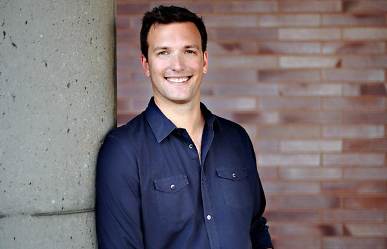Decision.io Founder Josh Wright on the Challenges of Startups and Waterloo vs. Silicon Valley
 I met Josh Wright, the cofounder of Marmot Labs, which just launched Decision.io, on a hazy Tuesday morning at the Communitech Hub. The Hub is the cool space in town: a mix of industrial and modern interiors home to a lot of early stage ventures.
I met Josh Wright, the cofounder of Marmot Labs, which just launched Decision.io, on a hazy Tuesday morning at the Communitech Hub. The Hub is the cool space in town: a mix of industrial and modern interiors home to a lot of early stage ventures.
KAMIL REXTIN: So how did it all start?
JOSH WRIGHT: Jesse (Guild) and Duncan (McDowell) my two co-founders and I have known each other since we were about eight years old. As kids we were the sort of guys that spent our time making business plans crazy ideas but soon realized we didn’t have the money or the expertise.
After school, we decided to take the MBET program together which was a great experience. It really gave us a chance to really work with each other and learn to start and build companies focused on solving real customer needs and problems.
KR: So what sparked Marmot Labs and Decision.io?
JW: During our MBET degree, we did a lot of work with Professor Paul Guild and we started thinking how we can help companies innovate better. How can we help business allocate scarce resources more efficiently? Where is the best place for money to be spent on innovation or how do we decide which are product to develop next?
This is where Decision.io was born. I had been working at the Accelerator Centre, Jesse and Duncan were working with Venture Services Group at Communitech. We saw a pretty clear need to have a system for group or collective decision-making when it comes to application review.
There are lots of other areas and use cases for Decision.io, but we decided to validate granting, startup support and university applications first. In essence it is an online platform for collective decision making where [our] customers can capture their decision making processes. The idea is that streamlining this process online and making this very accessible to a team of reviewers can help you make higher quality decisions and really enrich the conversations.
KR: Why start so young? What drove you personally to start a venture and not take a job?
JW: Essentially, this is a really interesting way to build experience, keep challenged, and do something different. I love the risk and the pressure.
I never thought I would be writing employment contracts or SR&ED claims, but I like the idea of figuring out how to execute on whatever is needed. You are on the fly figuring all that stuff out as you go, and it’s pretty fun.
The other guys, I’d say the same for them—we wanted to build something that has an impact something that fills a void. We have followed a certain simple methodology as best we can: identify a need that a potential group of customers have, get them to test out our solution and give us feedback and make sure they will pay for it. Rinse and repeat.
KR: So what stage is Marmot Labs at right now?
JW: We are currently in Open Beta and growing our revenue and improving our product.
We aren’t doing much marketing yet, but we are focused on streamlining our customer acquisition model. We were in a Closed Beta for 8 months. Our first customer was the first one to pay us.
And every customer since then has paid, which is lucky for us. It brings in some revenue and helps us bootstrap.
In our closed beta we acquired 12 paying customers. We went into open beta couple of months ago; now up to 17 and hoping to continue to grow quicker next month. For us right now it’s about improving the product and building a story so eventually we can look at raising a private round of funding so we can get on our feet.
KR: So what are some of the challenges of being in a startup? And do you think it’s being romanticized?
JW: I recently read really interesting article which was about turning startups into Hollywood—people get into startups thinking they will get rich and what not. It doesn’t always work that way. There are definitely some success stories that fuel that fire but it is still a ton of work no matter what.
It’s an emotional rollercoaster with ups and downs. Some days you might be on top of the world and some days you might get some very critical feedback and feel like you’ve been hit by a truck. But the important thing is to keep pushing through the bad times and focus on the wins.
Being broke is another thing. Being a bootstrapped business, we can’t afford to pay the founding team yet. We will eventually get to the stage where we can raise a private round but so far, we are doing the best we can with what we’ve got. We have tried to keep grounded and we want to prove it out and show traction and growth. We are really excited to keep things moving forward!
KR: What is your take on Kitchener Waterloo’s ecosystem vs. what they have down at Silicon Valley?
JW: There are good things and bad things. It’s a small community and you get to know most people. It gets pretty busy with events and there is a lot of support. Everybody is willing to help and there are some great mentors and community leaders. We have been really lucky.
That story is building here in the Waterloo Region, but it’s not there yet. It’s a great place to build a company though and we think it’s only going to get better.











